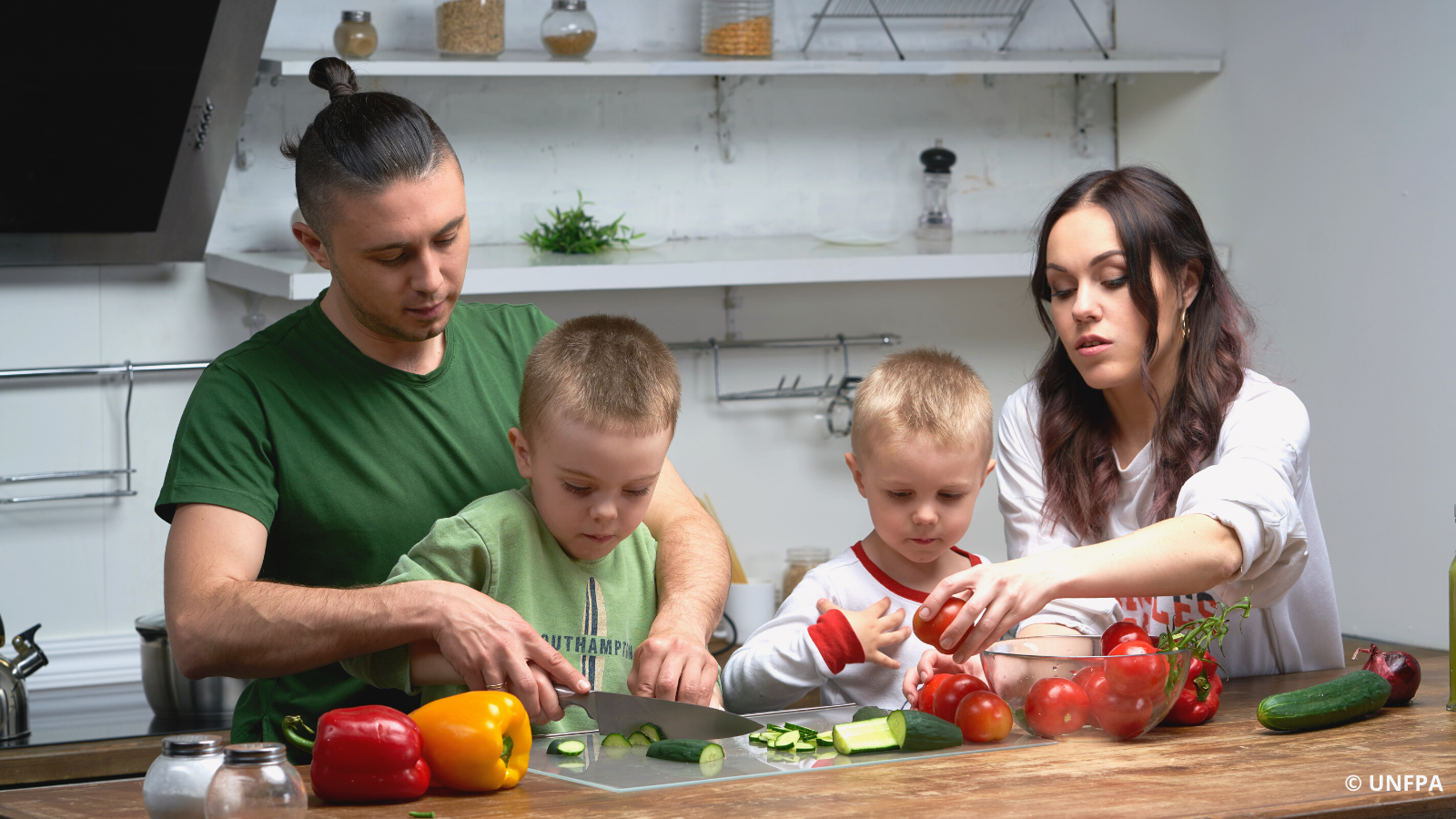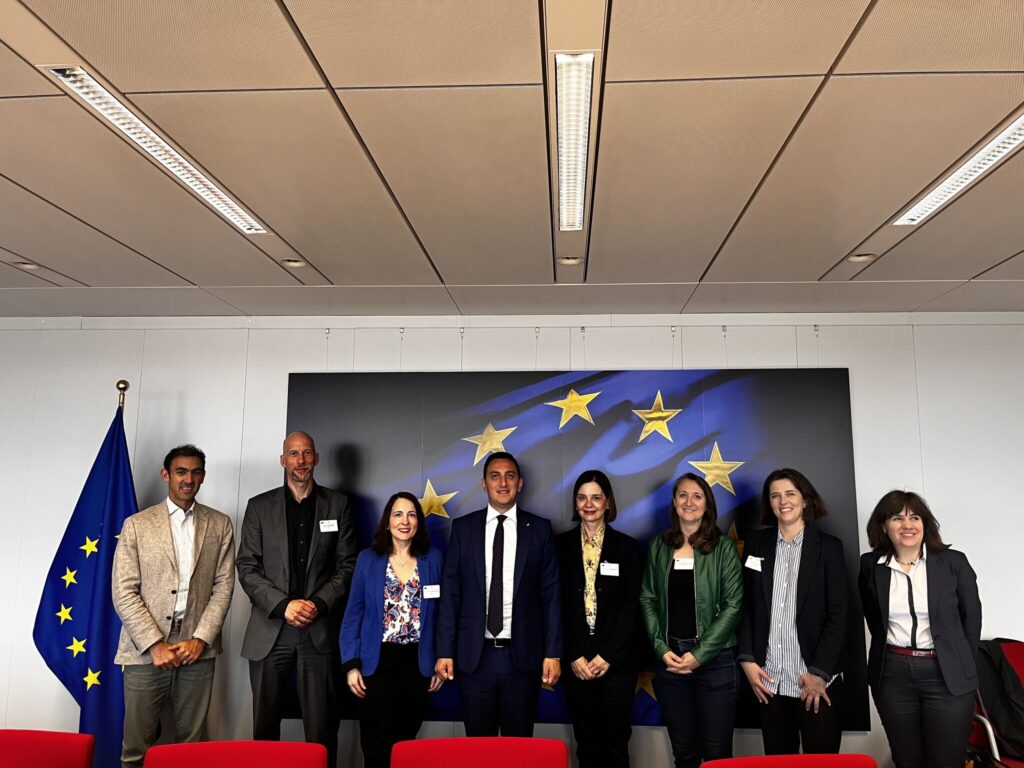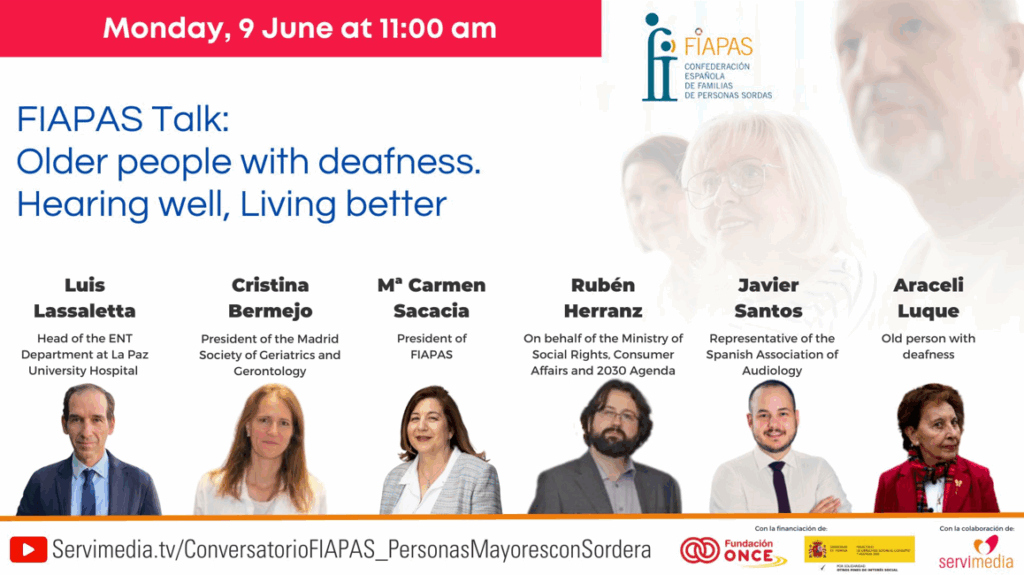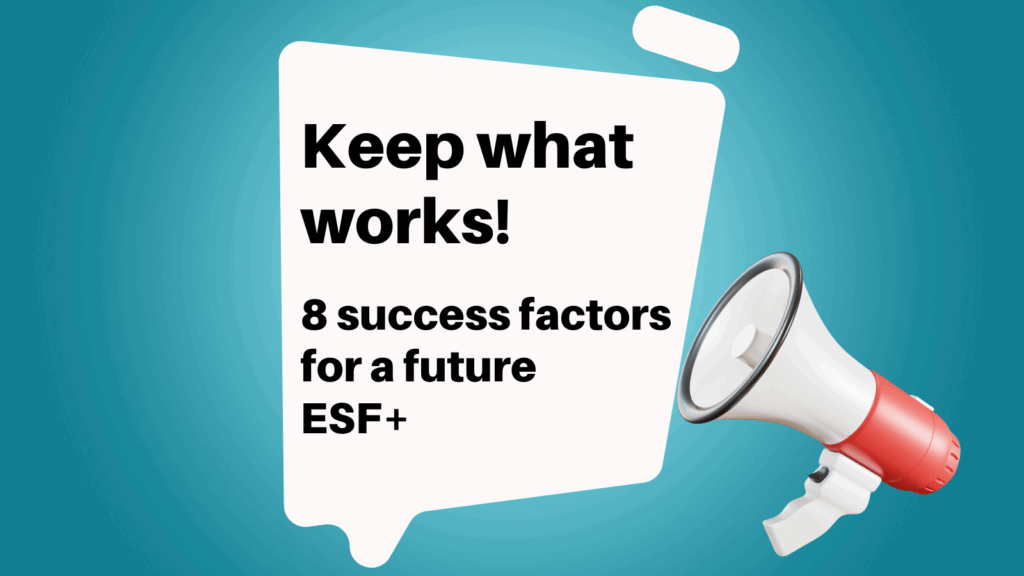Media Release.
Brussels and Istanbul, 10th May 2022.
To mark this International Day of Families 2022, we are pleased to announce the launch of #FamilyTeamWork, a joint campaign of COFACE Families Europe and Men Engage Eastern Europe & Central Asia, a UNFPA-led platform.
______________
No matter the make-up of a family, a family is a team. Each person plays a unique role in the structure and function of their family, and each individual’s strengths and personality contribute to the family’s well-being. We call on parents and children, and all societal stakeholders, to have a conversation about sharing care and household tasks, and team up against stereotypical gender roles within your families
The gender care gap is still high across the world. In the European Union, 94 per cent of employed women on average are involved in at least one unpaid care or household work activity at least several times a week, compared with 70 percent of employed men, according to a 2021 report by the European Institute for Gender Equality (EIGE). Housework tasks are the most unequally shared, with 93 per cent of women and 53 per cent of men regularly undertaking such work. In Eastern Europe and Central Asia, women take on the majority of the care for children and on average perform three hours more of household work per day than their male partners, with even higher discrepancies in some countries, according to a 2018 UNFPA report. Carrying such a disproportionate share of care responsibilities prevents millions of women from entering the labour market, choosing their career and working time, and earning an income and pension through work.
The recession shadowing the COVID-19 pandemic has been characterised as a “shecession,” implying disproportionately negative effects for women. Yet according to a recent OECD study, the crisis might more accurately be called a “mumcession,” as women’s work losses were driven in large part by the effects on mothers specifically. COVID-19 has been a time of crisis for families and their work-life balance, yet did not lead to significantly more shared care and household tasks within families. Quite the contrary. The OECD’s 2020 Risks that Matter survey presents cross-national evidence that when schools and childcare facilities shut down, mothers took on a greater share of additional unpaid care work – and, correspondingly, they experienced labour market penalties and stress. These findings serve as another reminder that governments must also consider inequalities in unpaid work and take a gender-sensitive approach when building their policies and recovery plans.
Many governments in the region, including the European Union, are stepping up their efforts to close the gender care gap through legislation, like the EU work-life balance directive or adoption of paid paternity leave provisions, and the preparation of the EU Care Strategy. Normative and policy responses are one side of the coin, but to address gender inequalities we need to also spark societal change, including within families.
In the run-up to the #InternationalDayOfFamilies 2022, COFACE Families Europe and Men Engage Eastern Europe & Central Asia, a UNFPA-led platform on engaging men and boys in gender justice, call on all key stakeholders to raise awareness about this reality and change the narrative around gender stereotypes and unequal gender roles. In order to get all families and their family members, including children, reflecting and talking on the need to share unpaid care and domestic work, we have developed a series of fun resources to get the conversation going on family teamwork for the benefit of all, transmitting these values to new generations.
Download and spread the family teamwork bingo cards, and get the conversation started on who does what. Have a conversation with your children about this. Change the narrative, both for your family and future generations.
//ENDS
Further reading and notes to the editor
Mind the gap: the EU Care Strategy must promote gender equality, COFACE Families Europe Statement for international women’s day 2022
https://coface-eu.org/mind-the-gap-the-eu-care-strategy-must-promote-gender-equality/
Gender inequalities in care and consequences for the labour market, 2021, EIGE
https://eige.europa.eu/publications/gender-inequalities-care-and-consequences-labour-market
2022 report on gender equality in the EU, European Commission
https://ec.europa.eu/info/sites/default/files/aid_development_cooperation_fundamental_rights/2022_report_on_gender_equality_in_the_eu_en.pdf
Gender Equality Index 2019, EIGE
https://eige.europa.eu/publications/gender-equality-index-2019-work-life-balance
Promoting social cohesion and convergence Upward convergence in gender equality: How close is the Union of equality? Eurofound and EIGE https://eige.europa.eu/publications/upward-convergence-gender-equality-how-close-union-equality
Engaging men in unpaid care work: An advocacy brief for Eastern Europe and Central Asia, UNFPA and Promundo, 2018.
https://eeca.unfpa.org/sites/default/files/pub-pdf/180829_Gender_Fatherhood%20PB_ENG_WEB.pdf
For more information, contact Bettina Guigui, Senior Communication Officer: bguigui@coface-eu.org





